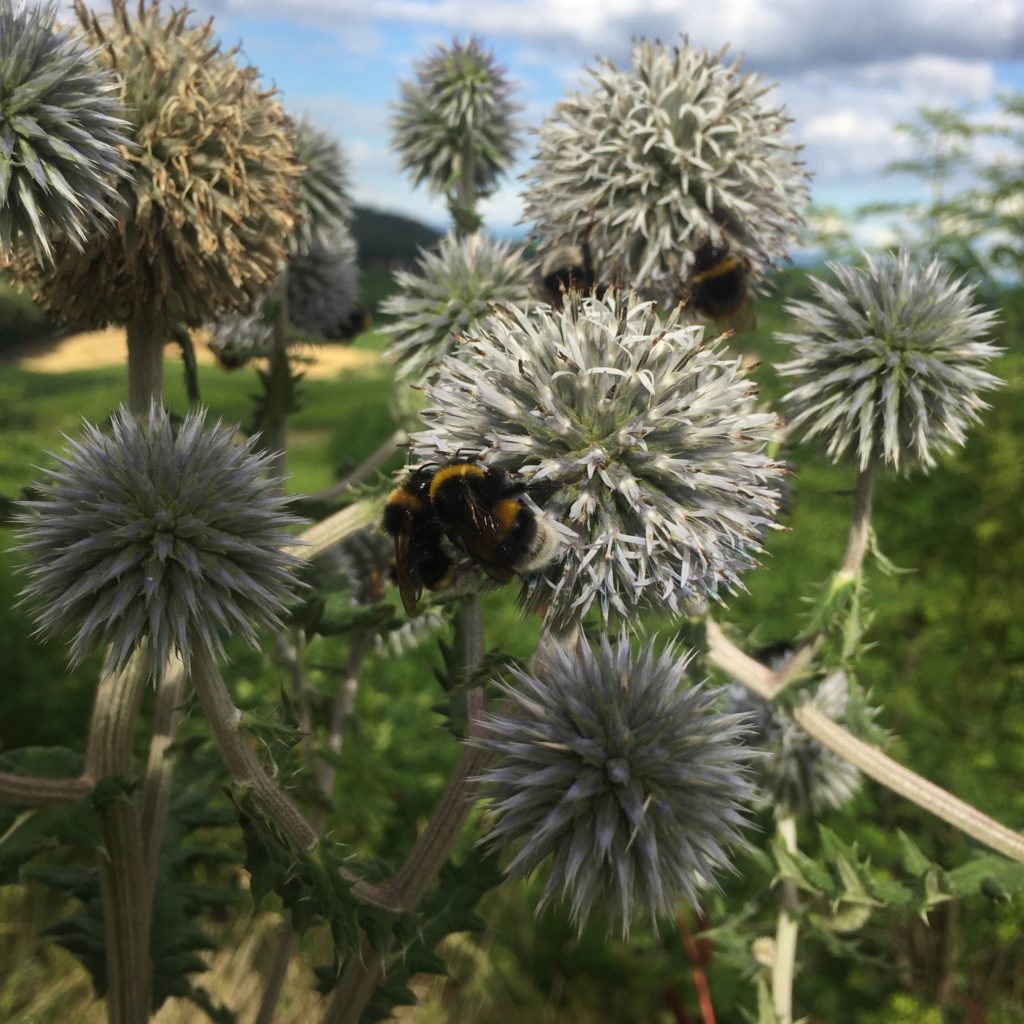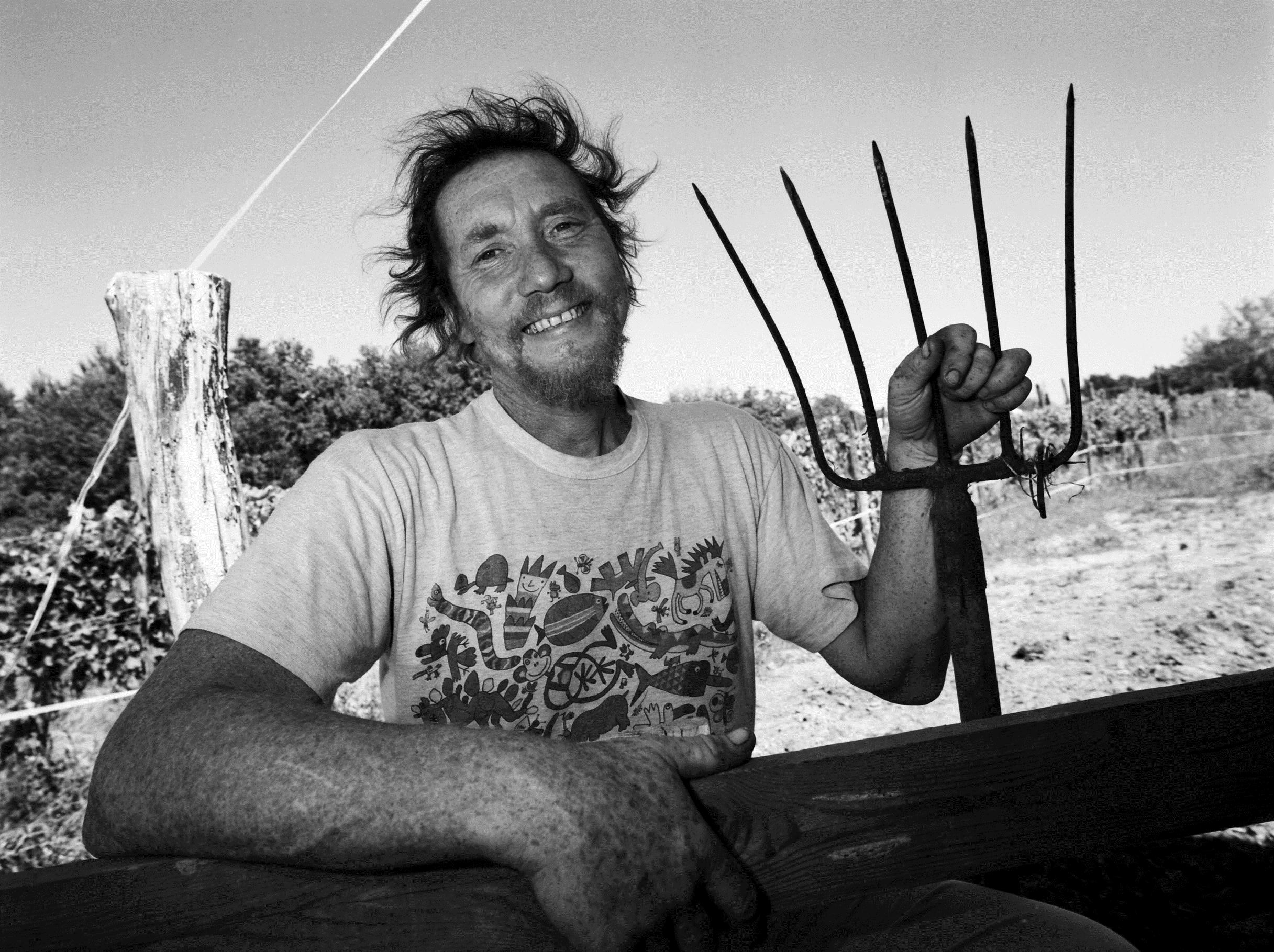In his 1971 book “The Unforeseen Wilderness: An Essay on Kentucky’s Red River Gorge” influential environmental activist Wendell Berry, emphasizing the desirability of preserving natural areas and adapting a long-range perspective about the environment famously wrote:
“We can learn about it from exceptional people of our own culture, and from other cultures less destructive than ours. I am speaking of the life of a man who knows that the world is not given by his fathers, but borrowed from his children, who has undertaken to cherish it and do it no damage, not because he is duty-bound, but because he loves the world and loves his children…”
We may think such sentiments to be quaint and idealistic, but they are as relevant today as they were fifty years ago, particularly in regard to the increasing despoliation and desertification of the land and the waters.
Intensive farming has been a contributory factor in environmental degradation. Of course, methods have changed significantly over the course of eleven thousand years. The world’s population is now many times greater and resides in urban conglomerations rather than on the land. Mass production, achieved through the continued mechanisation of farming and systemic spraying, reflects this reality. It is not sustainable.
Sustainable farming means factoring in the environmental cost of each and every action. The conservation of the planet depends on prescient stewardship of the land and the wider environment. This may seem a romantic notion when currently the largest 1% of farms operate 70% of the world’s farmland. What can small individual farmers do?
Green initiatives are usually driven by concerned local people and organisations. National governments are afraid of taking any action that might have an inflationary impact on the wider economy or require targeted publicly-funded investment. They will also resort to the excuse (for example) that other countries will miss their climate change targets and that it is essential to be commercially competitive in the global market as a reason for slowing down their own remedial investment. When the emergency is already upon us, economic excuses simply won’t wash, but we should not support progressive environmental policies only because there is an emergency, but rather because it is the right thing to do.
Since environmental lobbies have far less political clout than those agitating on behalf of big industries, change will rarely come by way of top-down political initiatives (which are usually so watered down in any case that they don’t move the dial in any significant way), rather from groups banding together to work for the good of the (local and wider) community. A farm itself can be so much more than ground planted on to yield crops for a supermarket, a monoculture of acreage under the tractor, it can be part of a biodiverse entity in which nature itself flourishes. The conscientious farmer will restore habitats, not eliminate them citing higher yields and more efficient production. The farm can be an educational hub where children and adults go to learn about plants and animals; it can offer horticultural therapy to help those with mental health issues and help bring the community together in common purpose.

Natural winemaking is founded on naturally respectful farming. Viticulture should be free of chemicals, healthy soils promoted through natural means, and natural solutions sought to combat pests and disease pressure. This is not a simple endeavour and involves a huge amount of time and effort to set up a vineyard in such a way that the vines are healthy and more resistant to ailments. Nothing is ever perfect. As for the proposition that the better (the more organic/regenerative) the farming, the greater the potential of the resulting wines, whilst I sincerely believe that to be true, it would be difficult to prove beyond all reasonable doubt in the court of science.
The soil is not just the earth in which the vines have their feet, it can provide the building blocks (the animus, if you will) of the wine itself. Healthy soils brim with nutrient micro-organisms, microflora and fauna. They will be well aerated and well drained and allow the plant’s root systems to grow deep in search of water and mineral content. The quality of farming, the uptake from the soils, the resilience of the vines all play a part in the production of nutritious grapes. The positive benefits are therefore twofold – healthy soils, a legacy for future generations, and healthy digestible products.
Regenerative farming is the ethical rather than a commercial path to follow (not that these two approaches are always mutually exclusive). Decades of industrial farming have resulted in lifeless monocultures and poor plant health with vines reliant on chemical inputs. Regen farming poses a basic moral question: Do we need to produce cheap wine (or any agricultural product) to the detriment of the environment (including plants, insects, bees, birds and animals); do we want to be ingesting beverages with trace elements of chemicals or which have been denatured by the systemic application of such chemicals?

Regenerative farming is predicated on environmental restoration. This may entail rewilding by means of planting indigenous species of trees and shrubs, restoring wild meadows and hedgerows, allowing wetlands to form, peat bog to grow back, sowing meadow flowers to encourage insects and bees and creating wildlife habitats and sanctuaries. So many of these measures are instrumental in mitigating climate change.
As consumers, we can contribute to charitable restoration projects (or volunteer our time), but we can also make a concerted effort to learn more about where our food and drink comes from and the methods of its production. Farmers’ markets and local shops promote provenance and can establish links between farmers and suppliers and consumers. It is easy enough to say that consumers should “go organic”, but we also have to consider the budgetary impact of such a decision.
We live in a world where food is expected to be cheap and convenient (everything available all the time) on the one hand, and one where over-farming is causing the breakdown of eco-systems. We need to consider wider issues such as what we’re eating (is it fresh, good and healthy for us); how can we produce less but better quality, reduce food miles, transition from industrial farming to local enterprises, and eliminate expensive and wasteful packaging. And reduce meat consumption. Governments would need to subsidise conversion to sustainable/organics and review taxation policy to incentivise small farmer, supermarkets would have to be prepared to sacrifice shareholder profits and pay their suppliers more. In the end though, if we see farming purely as a commercial activity, we are in grave danger of losing sight of the bigger picture. And that is the respect for the natural balance of things.

I think it was Stefano Bellotti who observed that farming was a political act. Improving the quality of the environment requires an action plan. To that end, Richard Woodfine (Woodfine Wines) has come together with a group of like-minded folk in a charity enterprise called “Rebel Restoration”
What is Rebel Restoration?
Quoting from their document:
Rebel Restoration is an independent environmental charity led by science.
- We are committed to supporting high-impact projects across the UK that help restore our planet.
- We’ve witnessed first-hand the flaws of offsetting schemes, carbon credits and the carbon market, from intermediaries driven by profiteering, a lack of transparency as to the real additional impact of projects undertaken, to undervalued environmental assetssuch as ‘blue carbon’.
- Instead, we’re creating a model for how to do it right.
- The planet is facing both a climate and biodiversity crisis – we’re supporting the long term-term, holistic solutions delivered by not-for-profit grassroots projects, supported by well-recognised environmental action groups and backed by world-leading scientific experts.
Rebel Restoration backs Nature Based Solutions that:
- Remove carbon from the atmosphere. We’re investing in natural carbon sinks, like peatbogs and mangroves.
- 2. Enhance natural ecosystems. We are working to protect, restore, and enhance natural ecosystems. One, because drastic action is needed to prevent a sixth mass extinction. And because healthy ecosystems are essential for humans and resilience against climate change.
- Empower local communities. We support projects that engage, empower, and serve local communities – we think it’s the secret to successful and long-lasting projects. And we fund world-leading science to improve restoration for everyone everywhere.

What are Nature Based Solutions?
Nature Based Solutions are one of the answers to addressing the impacts of climate change. The term refers to an approach that works with nature to restore degraded ecosystems, enhance natural carbon sinks, increase biodiversity, maintain vital ecosystem services, and empower local communities.
The restoration projects including managing peatland, peat being a vehicle for carbon sequestration; seagrass meadow restoration (these meadows are the lungs of the sea, absorb carbon, create an environment for marine life); rewilding; supporting fund-raising to maintain mangrove forests; community tree-planting; restoring chalk streams and grasslands (mainly in southern England); and finally, of course, regenerative agriculture. “Nature reserves and national parks across the UK have received much focus and resources to improve habitats over the last 50 years. However, in parallel, our farmland, a vastly larger area, has become increasingly depleted in nature and carbon due to over-intensive agricultural practices. Improving biodiversity on our farmland is the big prize for nature restoration at scale in the UK but is contentious and needs to balance food supply and farming.”
With political rowing back from net zero targets and the depressing rise in climate scepticism promoted by industrialists, politicians with vested interests and the right wing media, it is important to re-energise our debate about the planet and keep reminding others that we really are borrowing this beautiful earth from our children. We could all do a lot more to contribute, starting as consumers with our buying choices, then by taking an active part in the welfare of our farming communities.


